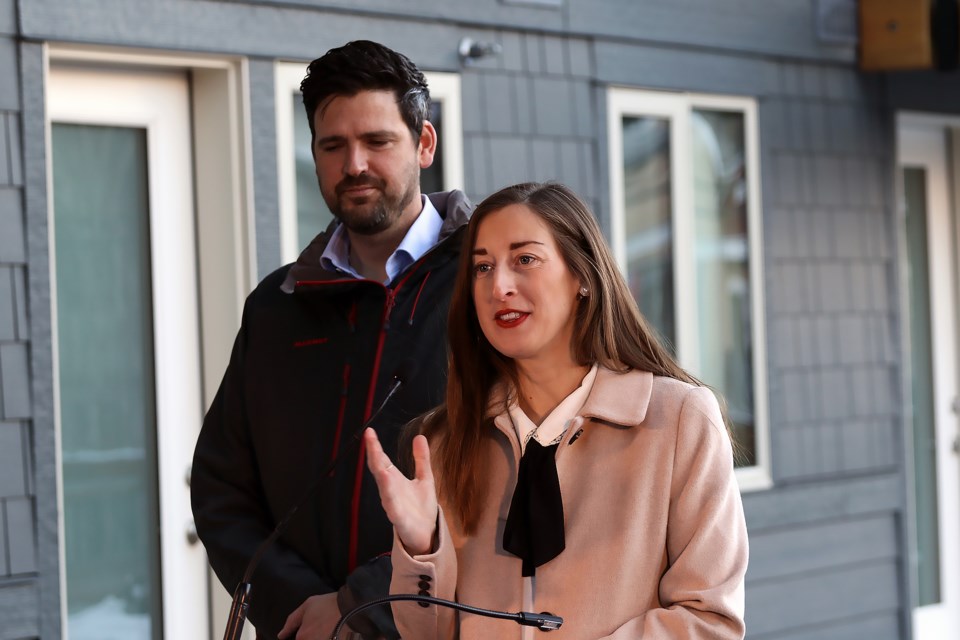BANFF – The Town of Banff is getting more than $4.6 million in federal funding over the next three years to help deal with the community’s housing crunch.
Housing, Infrastructure and Communities Minister Sean Fraser announced a $13.8 million federal government investment on Monday (Feb. 19) as part of agreements reached with six Alberta communities, including Banff, under the Housing Accelerator Fund (HAP).
“Over the next three years the $4.6 million that Banff will receive will incentivize 120 units but the real payoff is in the long-term because over the next 10 years, we expect to see that number grow to almost 1,500,” said Fraser.
“We’ve put federal money on the table to incentivize changes in the ways homes get built, not just directly funding their construction, but these systemic changes are going to have a lasting impact on communities like Banff, and small communities across the country.”
The other communities were Sylvan Lake, Bow Island, Westlock, Smoky Lake and the Village of Duchess. In total, agreements were reached to fast track a combined total of over 400 homes over the next three years.
Banff Mayor Corrie DiManno welcomed the funding announcement to provide more housing in the community.
“We’re effectively at zero per cent vacancy for rental units, and we have a shortfall of 700 to 1000 units in town,” she said.
DiManno said Banff’s four square kilometre boundary adds pressure to spark more housing redevelopment within existing land base through policies, incentives, federal land support and creative zoning.
She said the $4.6 million will be a catalyst for Town of Banff-led projects, including the Banff Housing Corporation’s current investigation of a 250-unit affordable housing development on Tatanga Ridge benchlands.
“The funding will also help accelerate the development permit process and has inspired bold new changes to municipal policies that will encourage more private developers and property owners to create homes,” she said.
DiManno said the Town is looking to change land use policies to allow more density and multi-unit developments in all residential zones.
“The time of being able to build a single-family detached home in Banff will soon be over,” she said.
DiManno said Banff’s housing action plan will provide grants for homeowners to create more secondary suites and parking requirements will be reduced or eliminated in new developments so more space is dedicated to housing.
She said the municipality wants to increase the maximum floor area that can be built for new housing by relaxing setbacks from property lines and increasing height limits.
In addition, she said the Town is strengthening the policy that requires businesses to build new homes or pay the municipality cash-in-lieu to make sure housing gets built.
“If a business changes or expands and the new commercial activity requires hiring more staff, they have to create more housing in the community,” said DiManno.
To qualify for HAF funding, municipalities were asked for innovative action plans, and encouraged to think big and be bold in their approaches, which could include accelerating project timelines, allowing increased housing density, and encouraging affordable housing units.
Launched in March 2023, HAF is a $4 billion initiative from the federal government that will run until 2026-27.



